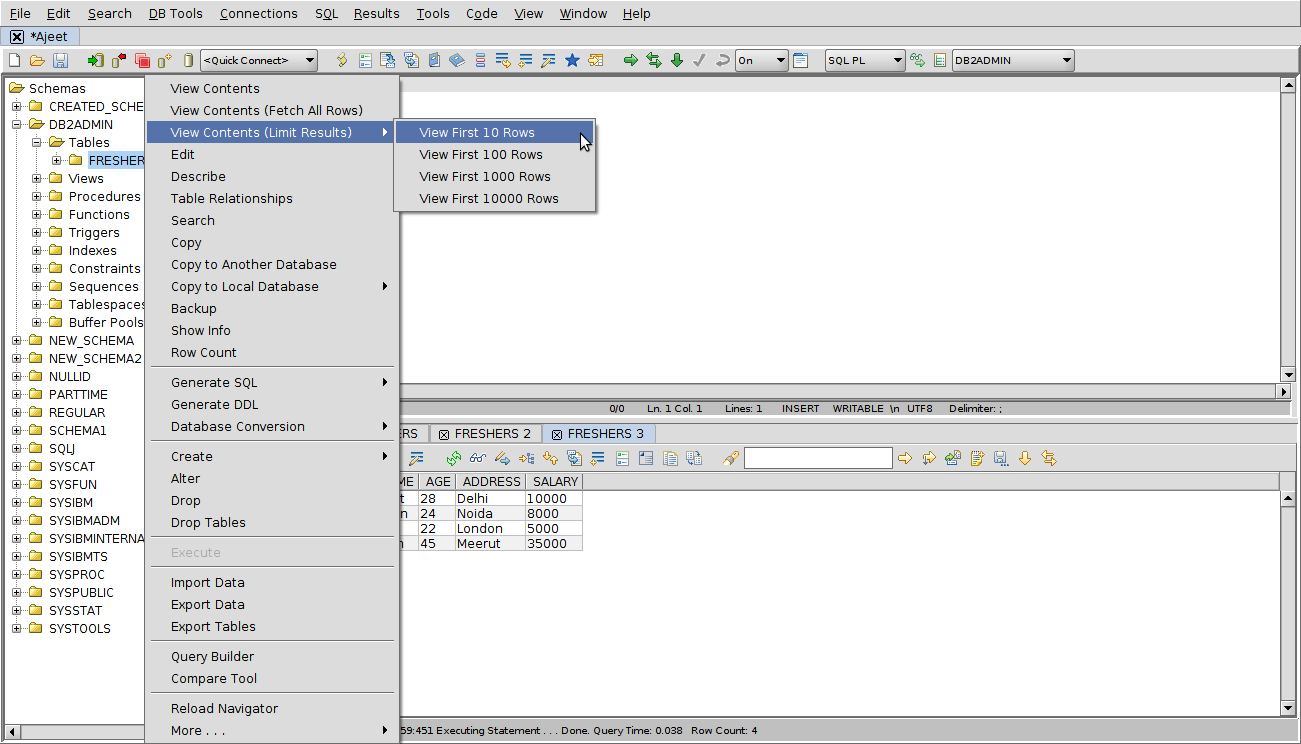

At BMC, we are committed to assisting all Db2 z/OS professionals to support, enhance, and advance their Db2 environment.Hadoop, Data Science, Statistics & others The goal of these new solutions has a few purposes: self-service to all IT professionals, providing the remaining DBAs specific advice using deep understanding of Db2, and building the new generation of experts.Īre we really going to see the Db2 z/OS DBA ride off into the sunset? My belief is no, but as it has over the years, the role will continue to change. BMC is continuing to provide new products to the marketplace to address the vanishing DBA, System Programmer, and Capacity Planner – BMC AMI DevOps for Db2, BMC AMI for Systems, BMC AMI for Cost.
Db2 data generator software#
Who is going to implement these new features and functions? Eventually, these resources vanish – what can we do? I know vendors like BMC have been putting in capabilities in software to alert when things are not performing as usual, automate processes using the expert’s knowledge of the systems, and allow non-experts to act like experts with self-service tools. However, many of us realize that this just moves the burden to applying maintenance more often to keep up with problems and new features. That is why vendors like IBM and BMC are trying to implement continuous delivery-no more installs, just maintenance. The combination of extended deployment and the higher availability requirements leads to delays.
Db2 data generator upgrade#
His procedures were documented, but now when an upgrade is needed or maintenance is applied, it takes 3–4 times longer. At one company I work with, the system programmer retired without much warning. Many times that sounds good on paper but never happens. Yeah, I know the plan, share all that knowledge from these professionals. Many companies’ Db2 organizations still have the technical experts along with their knowledge of the business applications. On to the second question: are the Db2 applications being affected by the vanishing Db2 DBA expert? This is a critical time. Are they filling the positions the DBAs are leaving? I suggest the answer is no –the traditional DBA role is being distributed across the organization: some in development, some in systems/performance groups, some by the Db2 engine, and some functions are just not being done at all anymore. The recent BMC Mainframe Survey shows more and more younger IT personnel are joining the MF ranks. Why are DBAs vanishing? If we do the math, Db2 has been around over 30 years – there are DBA that are reaching retirement age, leaving the workforce, or maybe moving to management or business/data scientist roles. Let’s address this issue by answering two questions. The DBAs say it is actually more complex to administer, there are more moving pieces to learn, and performance is ever more critical-with fewer DBAs to do the work. Yes, IBM has issued release after release to make Db2 easier, but with that Db2 success came the pressure to keep the data available, and with more and more critical data being stored on the mainframe server.

I am sure the folks reading this blog are saying all of that is not true. What can I take from that? IBM and Db2 are becoming easier to administer, there is less going on in the Db2 environment, and the mainframe has become self-maintaining. One group I work with went from 15 DBAs to 5 in only a couple of years, but with the same number of Db2 applications. Certainly, I hear and see Db2 databases getting larger and the availability requirements longer however, the size of the DBA group is shrinking. I have the great opportunity to work with several Db2 z/OS users across the US.


 0 kommentar(er)
0 kommentar(er)
